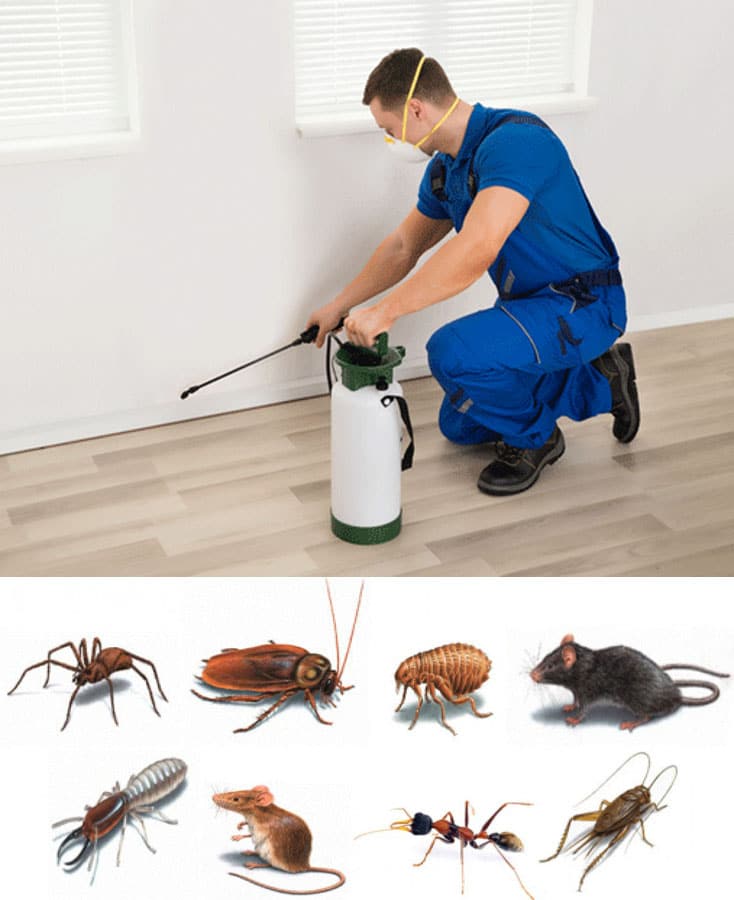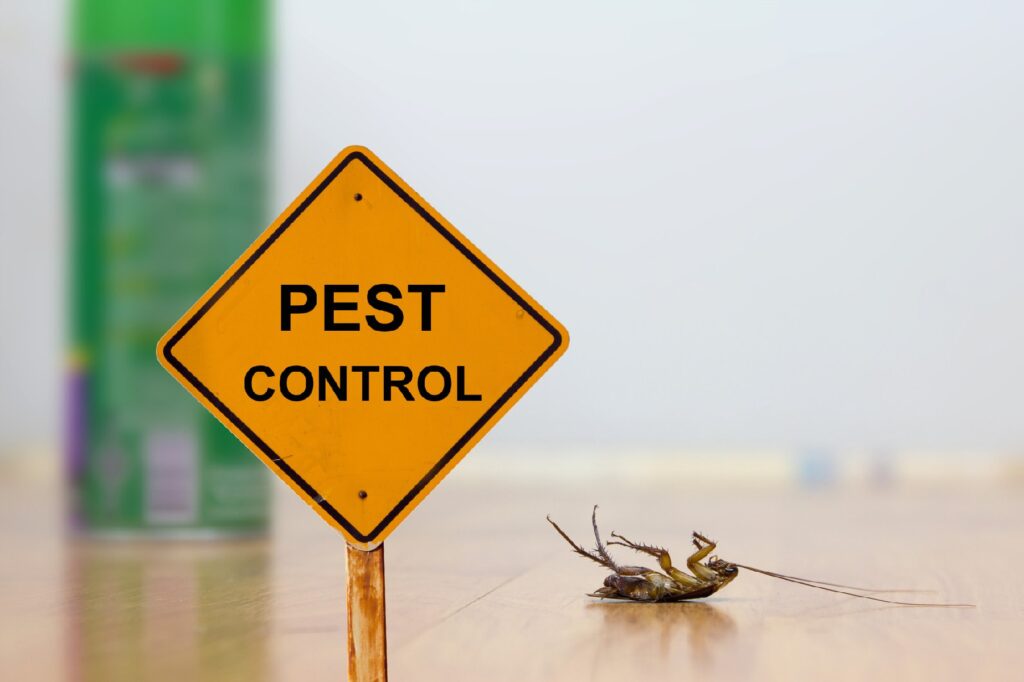Trusted Exterminator Coquitlam Services for Effective Pest Management
Trusted Exterminator Coquitlam Services for Effective Pest Management
Blog Article
Safe and Reputable Parasite Control for Lasting Defense
Efficient parasite management requires a complex method that balances ecological integrity with the demand for efficient pest reductions. The subtleties of these techniques might not be quickly clear, triggering a closer examination of the methods that can lead to lasting pest control end results.
Understanding Parasite Control Methods
Parasite control includes a range of approaches aimed at handling and getting rid of undesirable bugs and rats that can threaten both health and wellness and residential property. Recognizing these approaches is critical for effective pest management.
The key groups of insect control techniques include mechanical, biological, and chemical techniques. Mechanical methods entail physical barriers and traps to prevent pest entry and capture unwanted species. Utilizing displays on windows or using sticky traps can significantly reduce insect populations without presenting hazardous substances - exterminator coquitlam.

Chemical insect control is usually the most acknowledged technique, utilizing pesticides to eliminate bugs. These chemicals can be effective however must be utilized with care to stay clear of adverse results on non-target varieties and the environment.
Advantages of Eco-Friendly Solutions
How can environmentally friendly remedies transform pest control techniques? The fostering of green insect control approaches uses many advantages, substantially enhancing the performance and safety and security of parasite management.

Another benefit is the favorable influence on regional biodiversity. Environmentally friendly options are developed to target details pests while protecting useful pests and wild animals, advertising a balanced environment. This approach aligns with the growing customer need for sustainable practices, enhancing the reputation of insect control providers.
Integrated Parasite Administration Strategies
The implementation of environmentally friendly solutions normally causes the fostering of Integrated Insect Monitoring (IPM) strategies, which better boost pest control efficiency. IPM is an all natural technique that combines numerous tactics to take care of pest populations while decreasing environmental effect. This approach emphasizes using organic, cultural, mechanical, and chemical controls, guaranteeing a sustainable and well balanced method of bug monitoring.
One essential aspect of IPM is the thorough analysis of bug activity and ecological problems. By keeping an eye on insect populaces and recognizing their life cycles, experts can execute targeted treatments that interrupt the parasite's habitat or lifecycle, lowering dependence on chemical pesticides. In addition, cultural methods such as plant rotation and habitat control can significantly decrease bug facility and reproduction.
An additional critical element is the use of biological control agents, such as helpful insects or bacteria, which can normally suppress parasite populations. When chemical applications are needed, IPM prioritizes the usage of low-risk chemicals and applies them selectively, minimizing exposure to non-target organisms and humans.
Incorporating IPM strategies not just improves insect control effectiveness however also promotes a safer community, straightening with the growing need for lasting practices in insect management.
Safe Practices for Home Owners
Comprehending the value of risk-free practices in bug control can encourage house owners to effectively take care of parasite problems while securing their wellness and the setting. Applying non-toxic techniques and safety nets is essential in lessening exposure to unsafe chemicals.
Homeowners ought to first assess their atmosphere for conditions that bring in bugs, such as standing food, water, and clutter waste. Frequently cleaning and securing entry factors can deter bugs from invading the home. Making use of natural deterrents, such as important oils or anonymous diatomaceous planet, can offer effective alternatives to chemical pesticides.
When chemical therapies are required, house owners should choose products that are particularly identified as secure for property usage. It is important to adhere to application standards meticulously to avoid overexposure. Making use of targeted treatments in locations where bugs are determined, rather than blanket splashing, can substantially decrease chemical usage.
Lastly, keeping open interaction with pest control professionals is vital. Property owners ought to ask about the security of items used and request environmentally friendly choices whenever possible. By embracing these secure methods, home owners can create a much healthier living environment while properly taking care of parasite concerns.
Tips for Long-Term Defense
Establishing an insect monitoring technique that emphasizes lasting protection can significantly improve the efficiency of the safe practices formerly talked about. To achieve this, home owners must execute regular assessments electronic pest control device of their residential or commercial property, concentrating on concealed areas such as attics, basements, and crawl rooms. Early detection of bug activity is essential in stopping problems from taking hold.
In addition, preserving a tidy environment is crucial. This consists of correct food storage, without delay cleansing spills, and regularly taking care of trash. These methods decrease attractants that draw insects into the home. Furthermore, securing access points, such as splits around home windows and doors, can efficiently obstruct potential parasite gain access to.
Landscape design ought to also be taken into consideration; keeping plants cut and maintaining a range between vegetation and the home minimizes hiding places for parasites. Making use of natural deterrents, such as essential oils or diatomaceous planet, can further prevent invasions without considering rough chemicals.
Last but not least, working together with an expert insect control service for regular analyses can offer an extra layer of protection. These professionals can supply tailored suggestions and progressed therapies, making sure that your home remains secured against parasites in the long-term.
Final Thought
In final thought, trusted and secure parasite control requires a complex technique that highlights environment-friendly approaches and incorporated pest management. By carrying out natural deterrents, conducting regular evaluations, and keeping proper hygiene, homeowner can significantly reduce parasite populations while view securing useful pests and the setting. Collaboration with expert pest control services improves the performance of these strategies, making certain customized options that supply long lasting security and assurance versus future infestations.
Effective parasite management requires a diverse method that balances environmental stability with the need for reliable parasite suppression. The fostering of green bug control approaches uses numerous advantages, substantially boosting the efficiency and safety of pest monitoring.The application of green remedies naturally leads to the adoption of Integrated Parasite Monitoring (IPM) strategies, which better enhance insect control effectiveness. exterminator coquitlam. By checking parasite populaces and determining their life cycles, practitioners can execute targeted treatments that disrupt the parasite's habitat or lifecycle, minimizing reliance on chemical pesticides.In conclusion, risk-free and dependable parasite control calls for a diverse approach that stresses green methods and integrated bug administration
Report this page